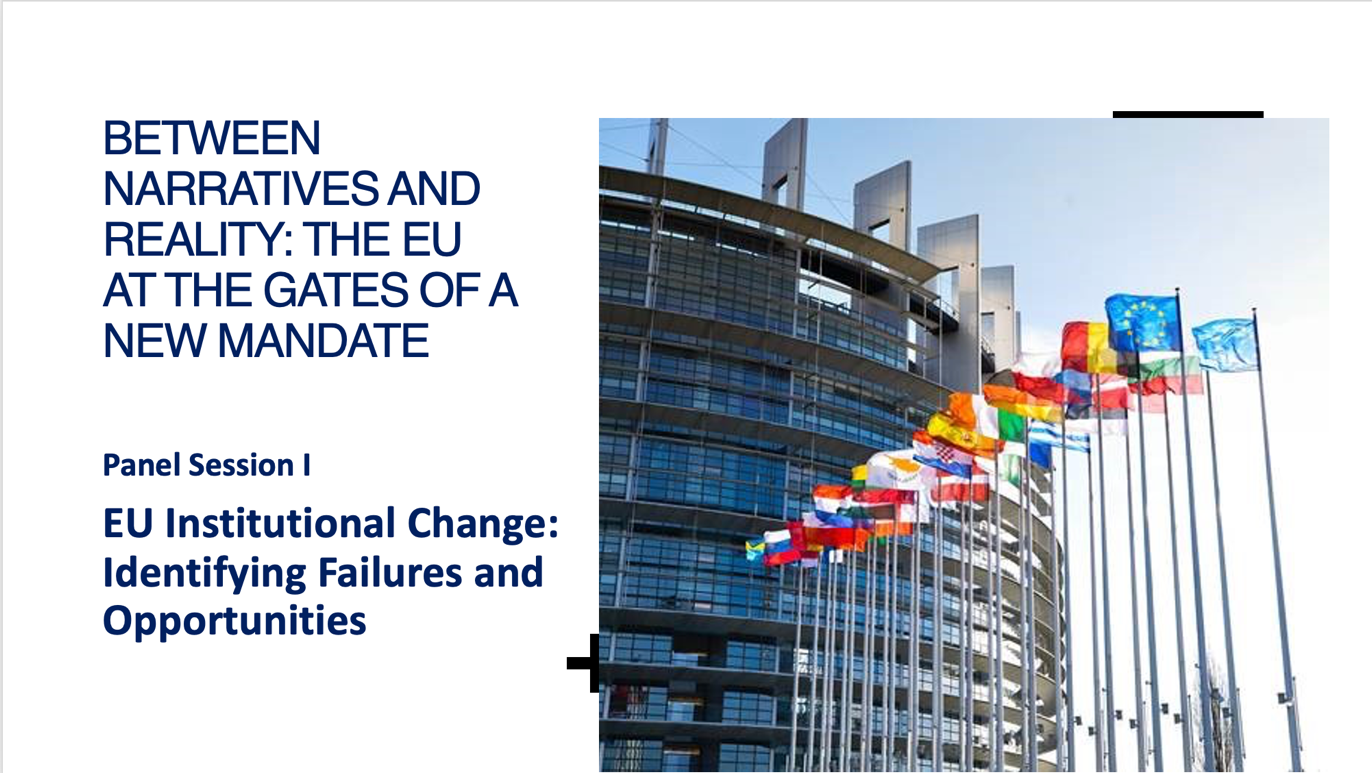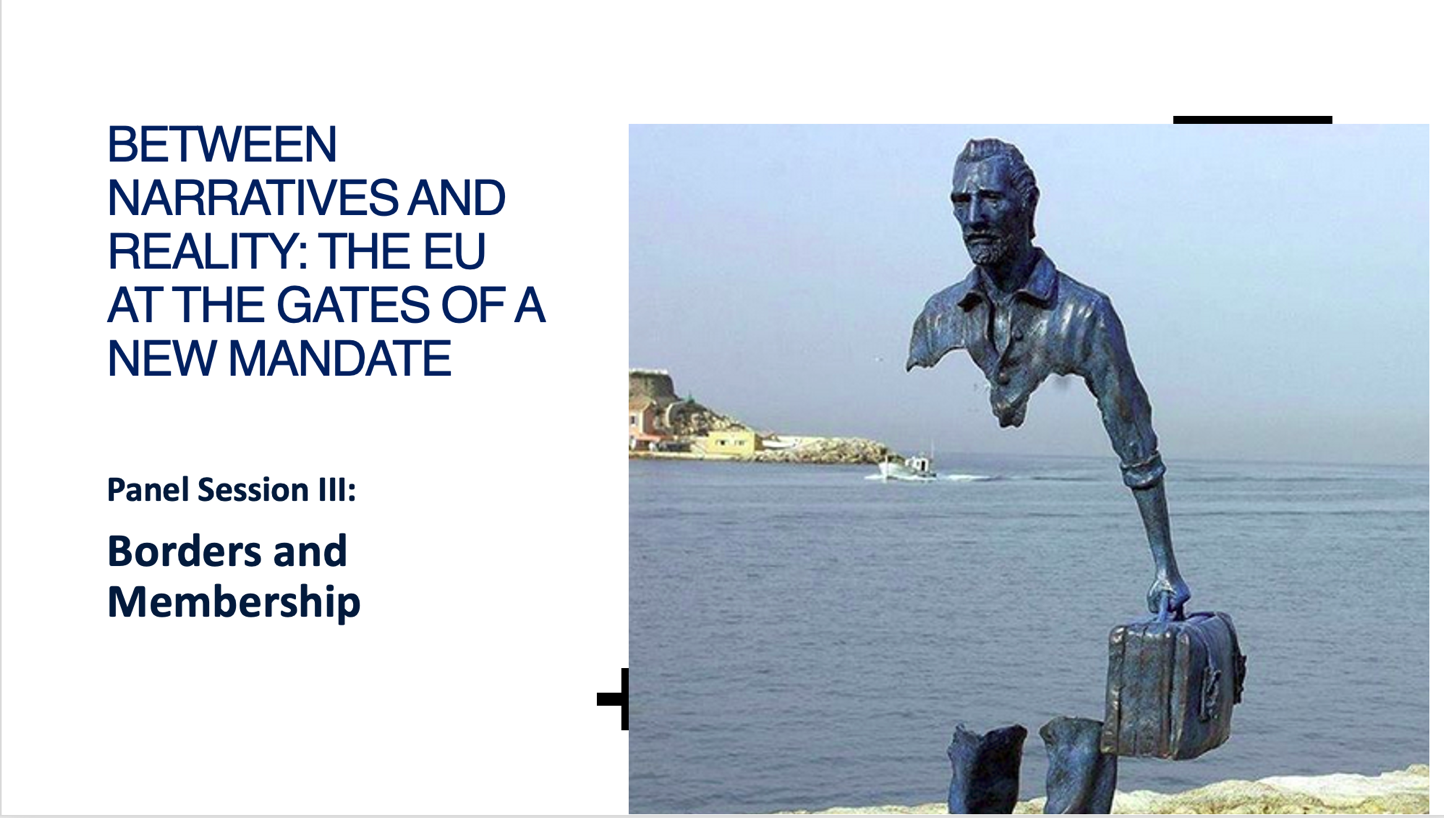Reflection on Panel 4: Inequality and Cohesion
This blog post is part of a series reflecting on the panel discussions held during the conference "Between narratives and reality: The EU at the gates of a new mandate", which took place at the Faculty of Law of Maastricht University on June 20 and 21, 2024. This panel addressed inequality and cohesion.

Chair of the panel: Zina Nimeth
Speakers: Pascal McDougall, Balász Szechy, Marco Bevilacqua.
Economic inequality is a prominent concern in contemporary European societies. The European Union tries to narrow them by means of instruments like the structural funds, while navigating accusations of actually increasing inequality through its market-oriented policies.
Firstly, Balász Szechy discussed the recent evolution of Cohesion Policy, which is deployed through the EU’s structural funds, and its challenges ahead of the next budgetary period. Besides fostering economic and social convergence, the structural funds are currently used towards promoting a competitive economy and enhancing the Single Market. However, this “sea of objectives” has attracted criticism, opening a period of reflection on what the funds should be used for and whether they achieve their initial aim of narrowing economic inequalities.
Following Szechy’s presentation, Pascal McDougall explored the legal foundations that could justify the Union’s obligation to reduce unemployment. McDougall defended that academic scholarship has not sufficiently explored the array of legal arguments that could be posed against Euro-crisis austerity measures. His presentation posited that the construction of the European and Monetary Union, and Member States’ relinquishing of competences on monetary policies, conferred on the EU an obligation to use all tools at its disposal to secure full employment and refrain from decisions that could harm it.
Lastly, Marco Bevilacqua explored the EU economic governance framework in the light of the latest changes introduced in 2023. Based on a top-down model in which the national governments have to show compliance the principle of structural budgetary balance, the new reform will give more margin for negotiation between the Commission and Member States based on the national plans’ targets and milestones. Bevilacqua explored how this new system affects the balance between different institutions and between different views on public finances.
After these presentations, the chair of the panel Zina Nimeth opened the floor for discussion and reflected on how different dimensions of inequality interacted with each other in the European setting.
Also read
Introduction - Between narratives and reality: The EU at the gates of a new mandate
Panel 1: Institutional Change
Panel 2: Environmental Protection
Panel 3: Migration and Membership
L. Díez Sánchez
I am Assistant Professor in EU Law. Before that, I was Inquiries Officer at the strategic team of the European Ombudsman, Teaching Fellow in Law at Sciences Po Paris, and Emile Noël Fellow at New York University (Fulbright-Schuman Scholar).

F. Ristuccia
Fulvia Ristuccia holds a Master’s degree in Law from Roma Tre University (2014), an LLM in European Law from the College of Europe in Bruges (2017), where she was also Academic Assistant in a.y. 2017-2018, and a PhD (cum laude, 2022) from Bocconi University.

Also read
-

This blog post is part of a series reflecting on the panel discussions held during the conference "Between narratives and reality: The EU at the gates of a new mandate", which took place at the Faculty of Law of Maastricht University o
-

This blog post is part of a series reflecting on the panel discussions held during the conference "Between narratives and reality: The EU at the gates of a new mandate", which took place at the Faculty of Law of Maastricht University o
-

This blog post is part of a series reflecting on the panel discussions held during the conference "Between narratives and reality: The EU at the gates of a new mandate", which took place at the Faculty of Law of Maastricht University o